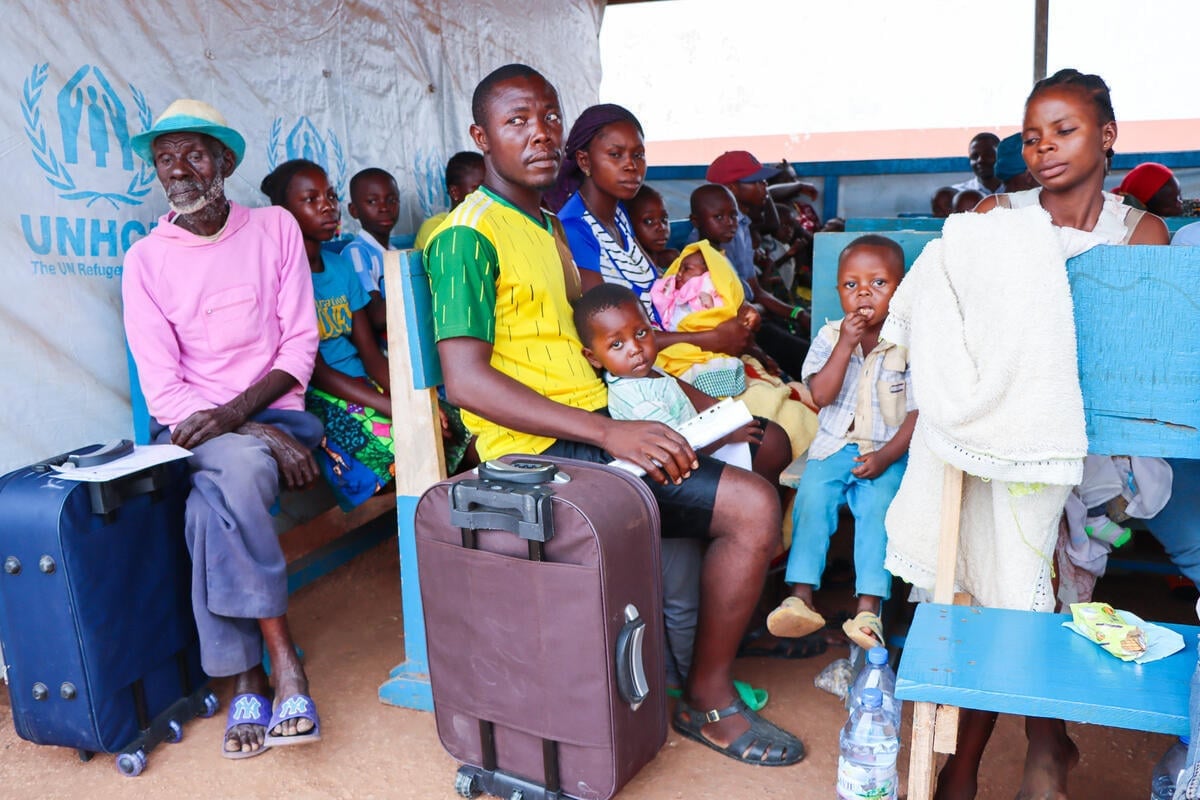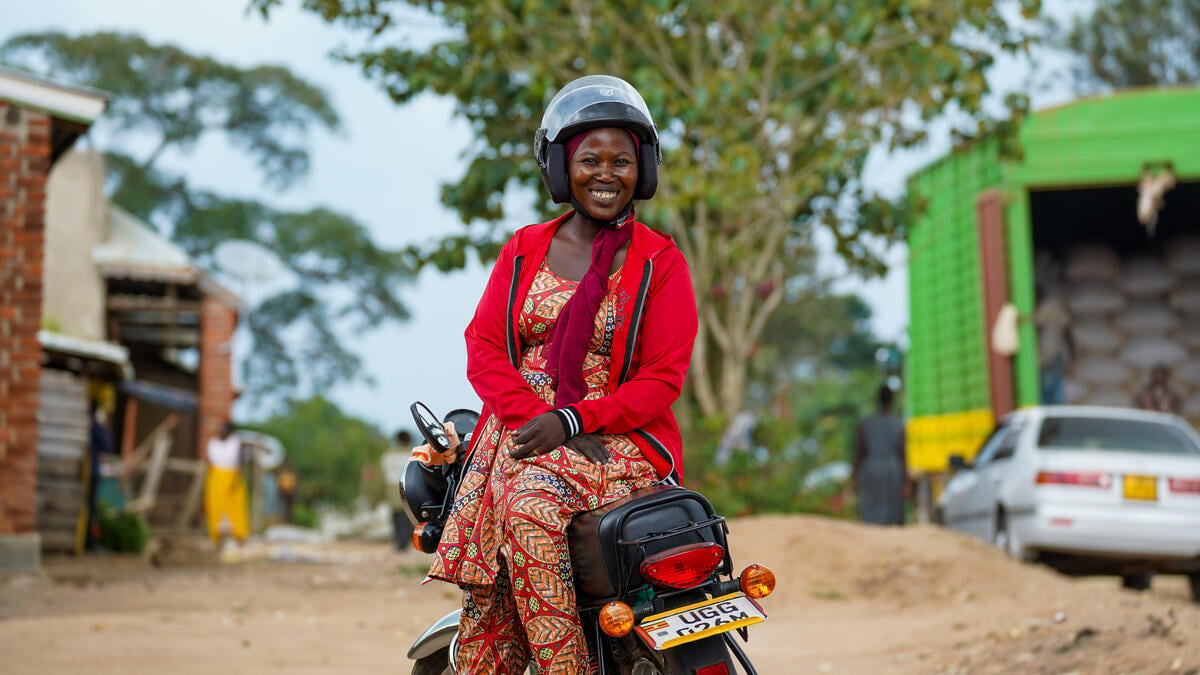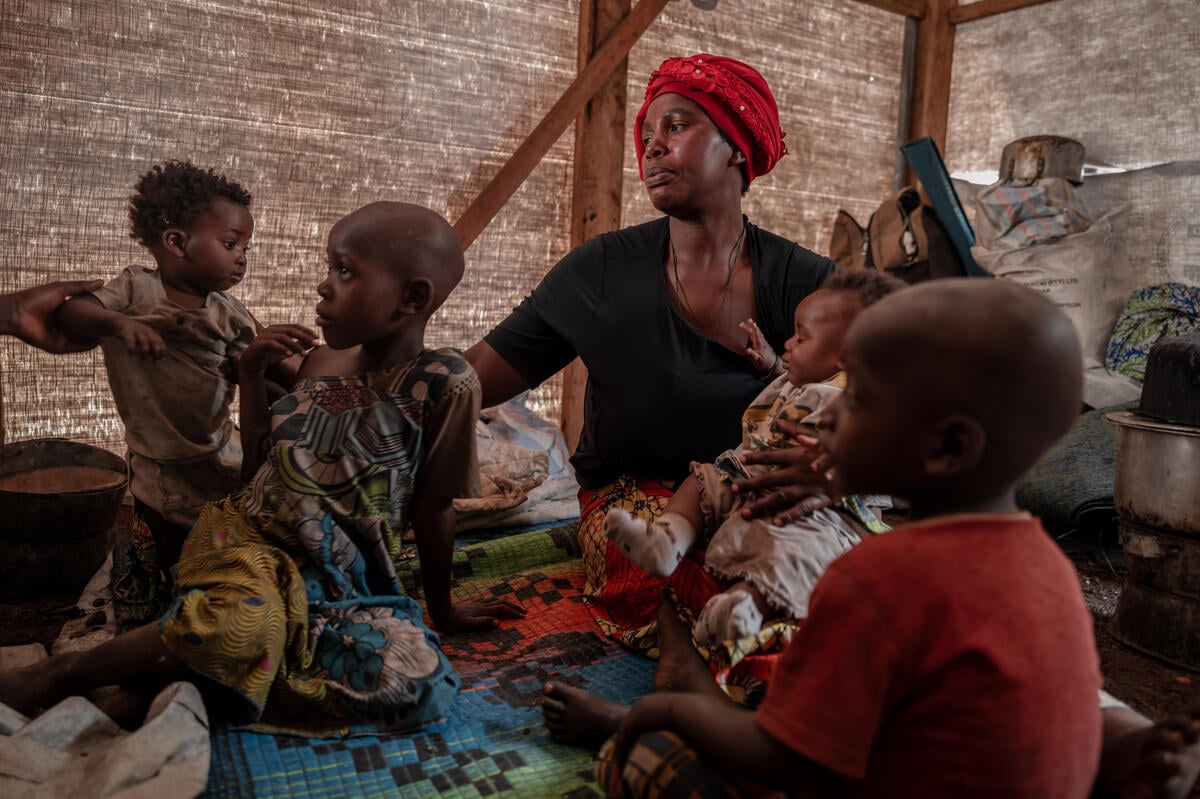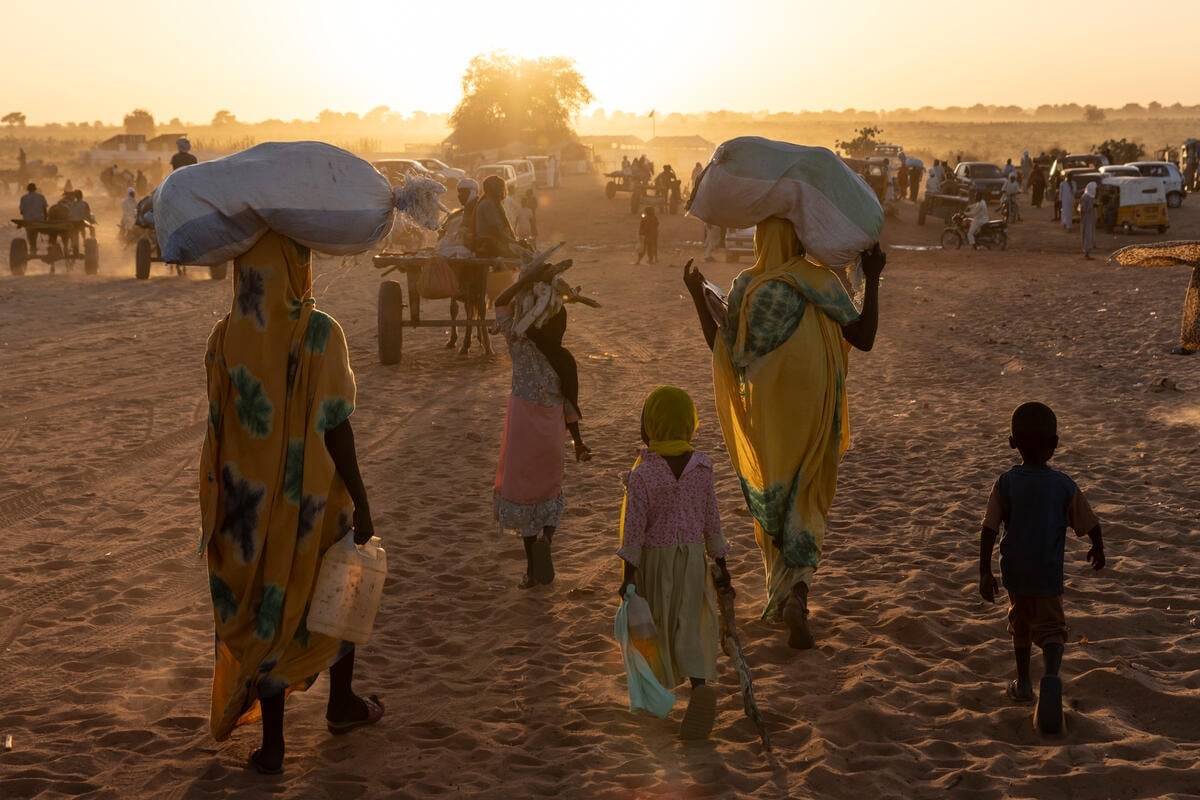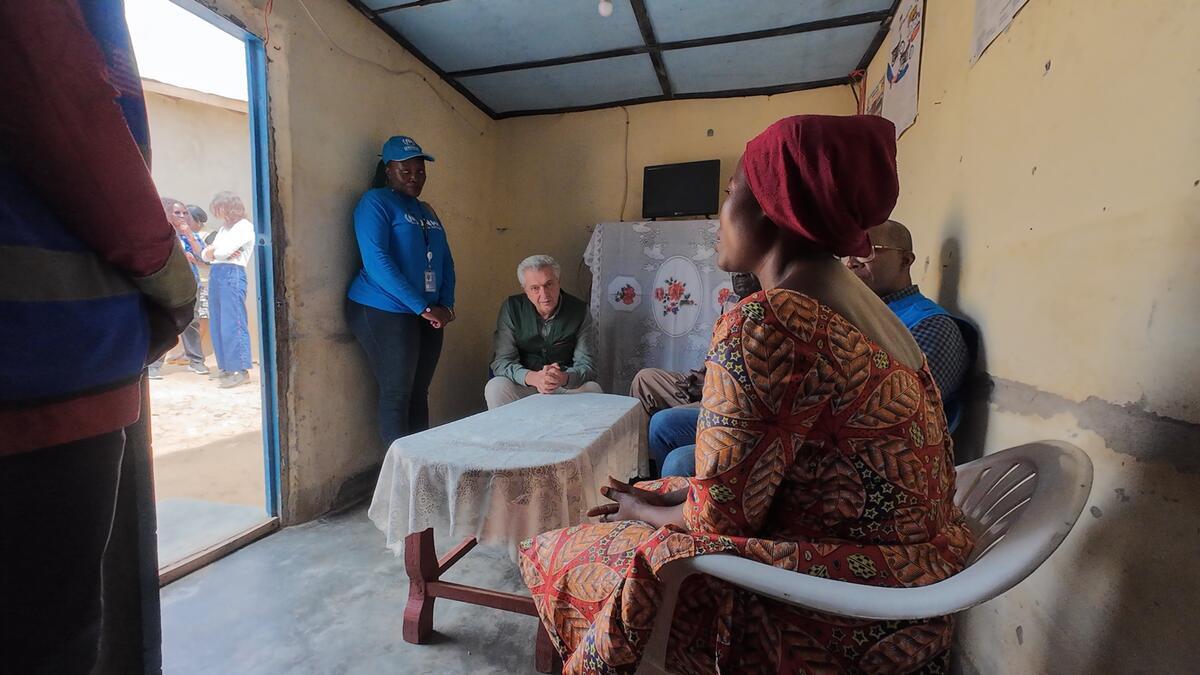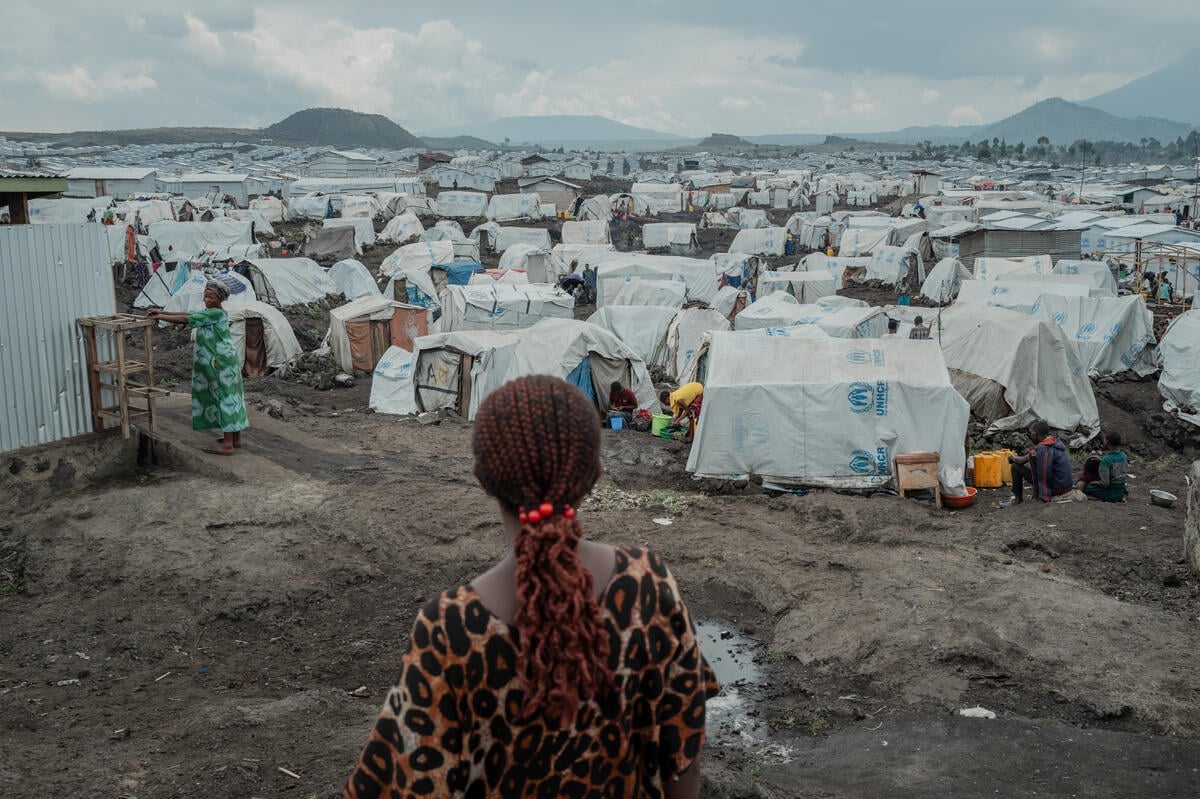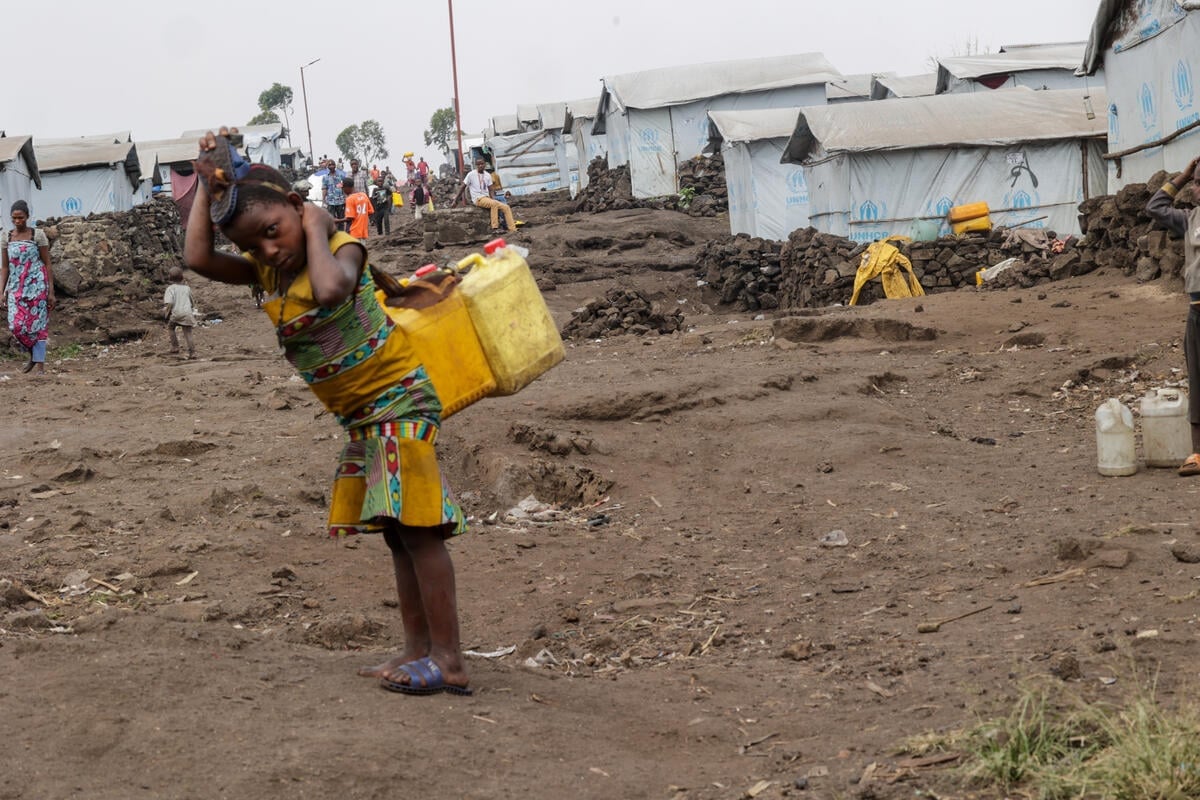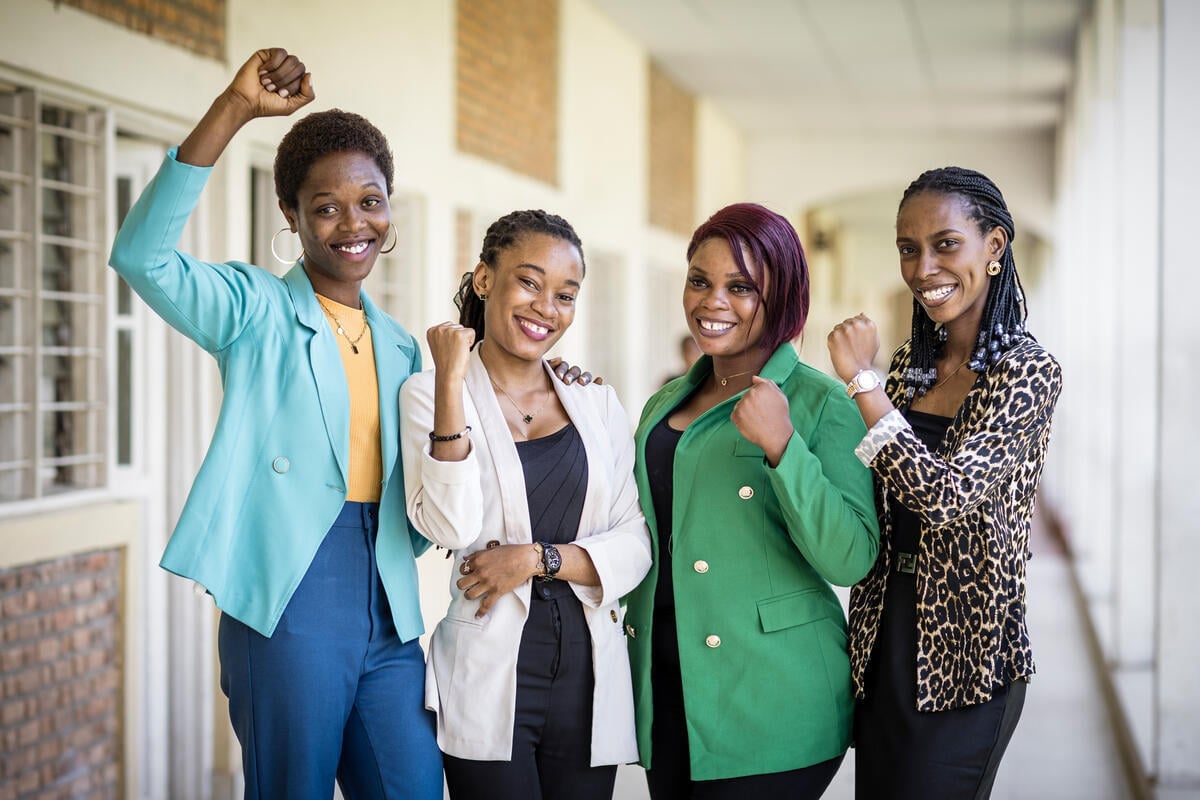Thousands of Congolese flee to Uganda to escape final push on M23
Thousands of Congolese flee to Uganda to escape final push on M23
In Democratic Republic of the Congo's North Kivu province, the fighting of the last days between the rebel M23 group and government troops has seen an estimated 10,000 people fleeing across the border at Bunagana into south-west Uganda's Kisoro district.
UNHCR staff in the border area reported early yesterday that bombs were falling very close to the border point that separates Bunagana town on the Uganda side from the rest of the town, which is in the DRC. Thousands of panicked people ran across the border, some carrying belongings, others with nothing.
Amid the shelling some areas in Uganda were also hit. Many local residents closed their homes and shops and moved away from the border area. Refugees arriving at the Nyakabande Transit Centre, some 20 kilometres away, told us that they had seen bodies on the DRC side. Sixteen 16 refugees and one Ugandan were taken to hospital in nearby Kisoro, where they are receiving treatment for minor shrapnel injuries. Our health partner, Medical Teams International (MTI), is supporting the hospital with medical supplies.
At 9am yesterday, we began transporting refugees from the border to the Nyakabande transit centre. As of last night 3,624 people had been moved, the largest number in a single day since the fighting between the government and the M23 began in April last year.
Many refugees are also making their own way by foot to the transit centre. People are out in the open and the weather in Kisoro is cold and rainy.
There are now around 8,230 people in the transit centre. We are providing them with shelter, emergency relief items, and food supplied by WFP. Many of the new arrivals are suffering from dehydration and diarrhoea. MTI has set up an oral rehydration tent at the registration point where refugees arrive and all new arrivals are screened by medical staff.
We currently have enough emergency relief items for a population of 10,000. In addition to several hundred family tents, there are 11 communal shelters which each hold about 300 people. A 12th is being erected that will accommodate 600 people. However, supplying water to the transit centre remains a challenge as water pressure in the district is very low and we are working to connect an additional pipeline. We are also facing shortages in surgical supplies due to the high number of injured we have received.
The majority of the new arrivals, around 60 per cent, are young children, and many have been separated from their parents while running from the border. So far we have received more than 100 children arriving on their own and we are housing them in separate tents, providing extra items and assisting them in getting food.
The situation back in eastern DRC remains tense and volatile with no one prepared to return and people still crossing. Security officials report that the town of Bunagana is empty of civilians. As of this morning we are moving people by bus from Nyakabande to a refugee settlement at Rwamwanja, to the north. There they will receive more comprehensive assistance.
For more information on this topic, please contact:
- In Nairobi: Kitty McKinsey (Regional), on mobile +254 735 337 608
- In Nyakabande: Lucy Beck, on mobile +256 772 710 137
- In Kampala: Karen Ringuette, on mobile +256 772 701 115
- In Geneva: Fatoumata Lejeune-Kaba, on mobile +41 79 249 34 83
- Leo Dobbs, on mobile: +41 79 883 6347


